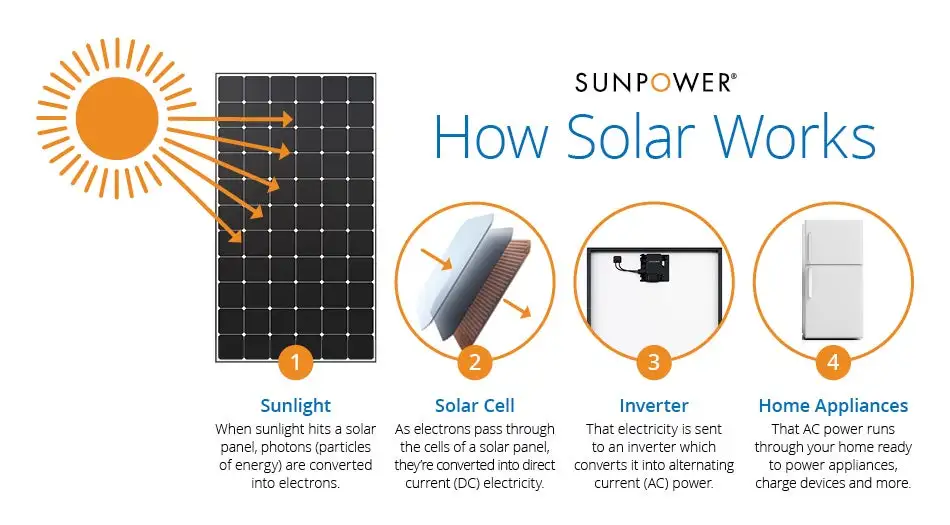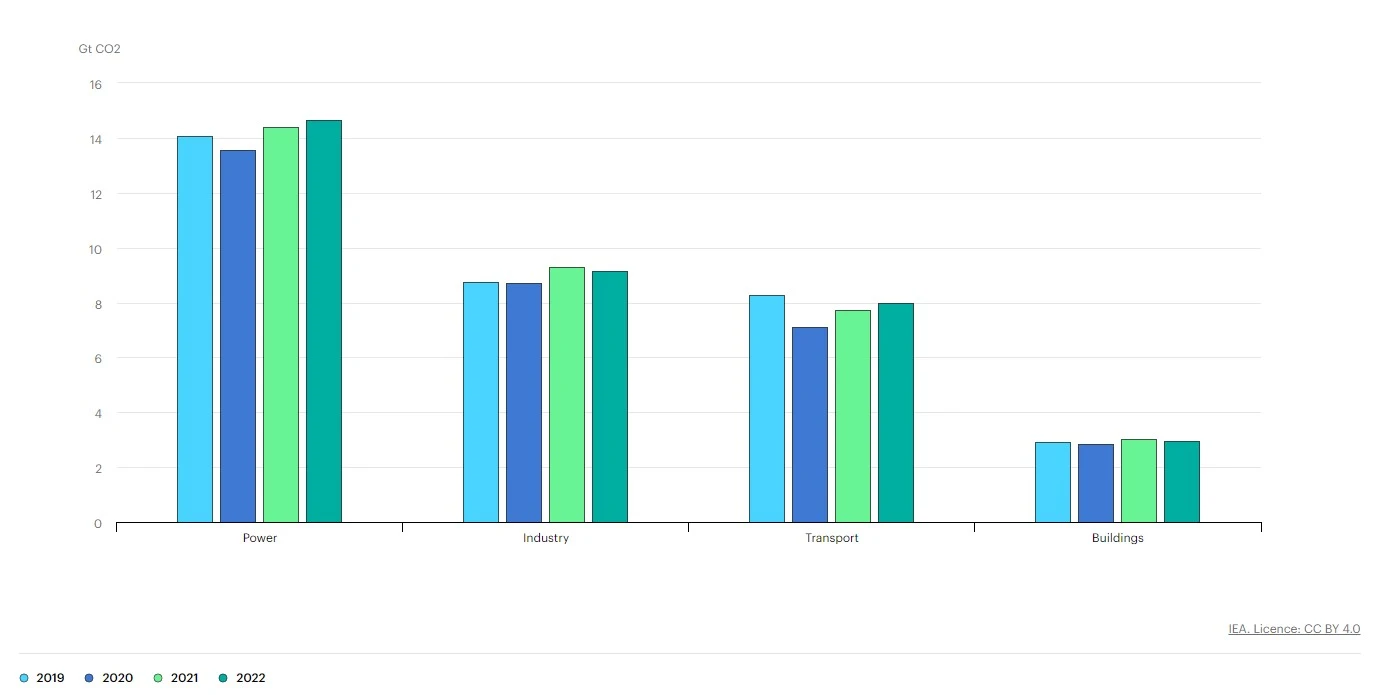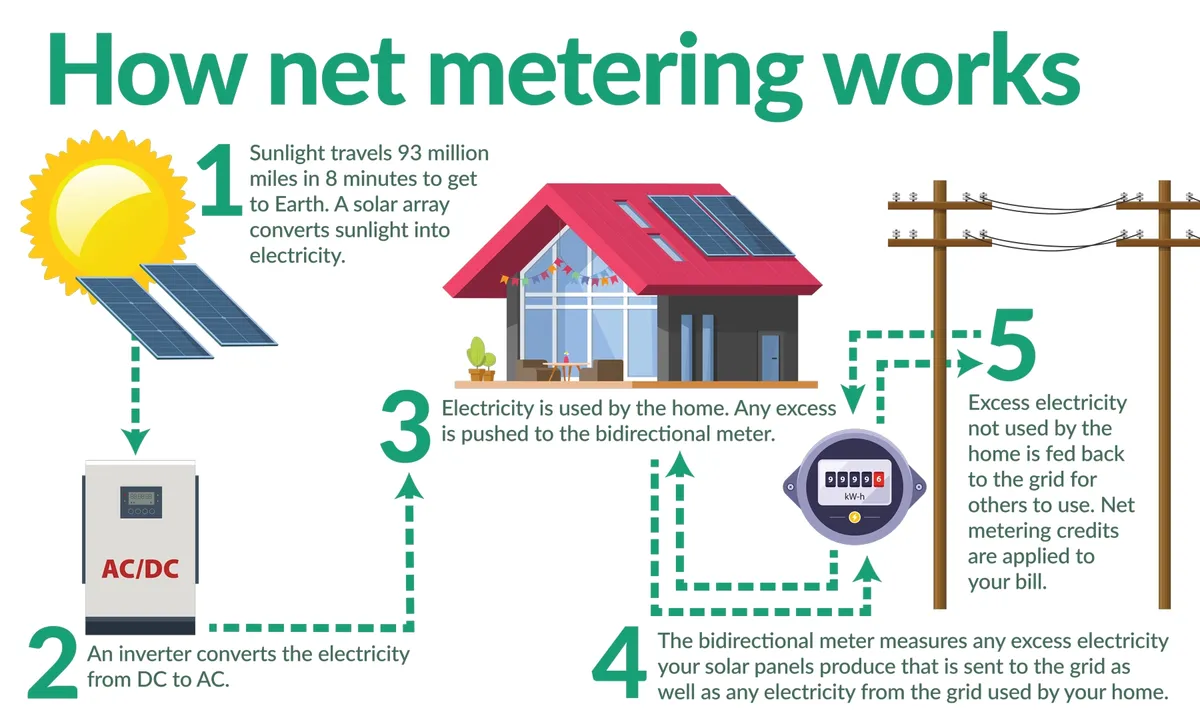Soaring electricity bills, a desire for energy independence, and a growing concern for the environment are just a few reasons why many homeowners are considering solar power. But how do you find out whether solar panels are worth it for you?
This article will explain the pros and cons of solar energy, the average system’s cost, and how to find the best panel for your case. By the end, you’ll be well-equipped to decide if solar power is the right path to a brighter (and more sustainable) future for your home.
How Do Solar Panels Work?
Solar panels use the photovoltaic effect to generate DC electricity. While you can directly power electric vehicles with it, to charge appliances, you’ll need an inverter to convert the electricity into AC.

Source: SunPower
Here’s a breakdown of how solar energy system works:
- Sunlight hits the panel. When sunlight strikes these cells, it delivers energy through tiny packets of light called photons.
- Photons excite electrons. As photons hit the silicon atoms within the PV cells, the silicon atoms excite electrons and knock them loose from their orbits. This action creates free electrons and positively charged holes where the electrons were previously.
- An electric field creates current. The PV cells are crafted with an electric field. This internal field pushes the freed electrons in one direction and the holes in the opposite direction. This movement of electrons creates a Direct current (DC).
- The inverter converts DC to usable AC. If you want to use this energy to power appliances, you need an inverter that converts DC to alternating current (AC).
- Powering your home or feeding into the grid. You can use this AC to power appliances or send it to the city grid.
The more sunlight hits the panel, the more electricity it can generate. However, there are no 100% efficient panels. Even the best options on the market can provide a 22,8% efficiency, while most panels’ productivity ranges from 19% to 21%. Those are great numbers and are expected to grow to meet the 25% threshold within a decade.
Just in 2010, the average solar panel efficiency was just 14%. So, as time passes, we will see more productive panels. Meanwhile, even now, this green energy can power houses, businesses, and even cities. The biggest U.S. solar farm, Solar Star, generates 579MW, enough to power 255,000 homes.
Why Are Solar Panels Good for the Environment?
Solar panels are a clean and renewable energy source. Their usage reduces greenhouse gas emissions in green communities. According to the International Energy Agency (IEA) report, the traditional gas- and coal-fired power sector is the largest global emitter of CO2, accounting for around ⅓ of global energy-related CO2 emissions and ⅕ of the total emission increase in 2022. Meanwhile, solar panels don’t produce any emissions during their usage.

Source: International Energy Agency
Once the solar panel system is built, it requires minimal maintenance. Meanwhile, traditional oil- and coal-powered electricity plants require constant maintenance and tons of clear water daily just to function. A global energy system based solely on renewables would reduce water consumption from conventional power generation by more than 95%.
While large-scale solar farms can occupy land, they don’t disrupt ecosystems as significantly as fossil fuel extractions. According to the “Biodiversity Risks from Fossil Fuel Extraction” research, the environmental impact of coal and oil extraction activities is profound and long-lasting. It destroys habitats, fragments landscapes, causes extended soil erosion and water pollution and introduces invasive species and pathogens.
At the same time, solar panels on solar farms sit still on fields already exhausted by agriculture. During the solar panel’s lifetime (25-35 years), the soil recovers and becomes fertile again. Small animals like rabbits and rodents can use shadows cast by panels to hide from the Sun’s rays.
Solar Panels for Houses: Pros and Cons of This Green Power
Solar energy is a promising renewable energy source, but it has advantages and disadvantages like any other technology. Consider these to determine if solar energy is worth it for your situation.
Advantages of Solar Energy
This green power solution provides a myriad of benefits to homeowners and businesses. Solar panels show high productivity in any climate, from sunny Florida to cold Alaska.
Once installed, panels capture sunlight and convert it to electricity without producing air pollution, greenhouse gases, or harmful noise. Meanwhile, it powers all your appliances, reducing grid reliance and lowering electricity bills.
While the initial price of solar panels can be overwhelming, many incentives can lower it to an acceptable level. Some financing options can even eliminate a huge initial payment, distributing your investments more evenly.
Homes equipped with solar panels can potentially fetch a higher selling price due to the cost savings and environmental benefits they offer. Several studies have found that homes with solar panels are, on average, 4-5% more expensive than comparable homes without them.
We left one of the most unexpected yet pleasant benefits of solar energy as the cherry on top. This green energy solution has the potential to earn money.

Source: Snohomish County PUD
Some states and counties have net metering policies to lower electricity bills. Once you send excess electricity to the grid, you receive metering credits that you can use to reduce your power bills. Meanwhile, some states and local municipalities provide incentives that allow you to sell electricity to the grid and receive actual money for it.
Disadvantages of Solar Energy
While solar energy offers many environmental advantages, it still has some drawbacks. As we said earlier, installing panels and batteries requires a significant initial investment. According to Forbes, the average solar panel purchase and installation costs vary from $10,000 to $25,000.
Setting up a solar panel system requires a suitable amount of unshaded rooftop or backyard space. If you don’t have enough space but still want to benefit from solar power production, you can subscribe to community solar farms.
Solar energy also depends heavily on the weather. On cloudy days, less sunlight reaches the panels, decreasing electricity production. To achieve off-grid living, invest in large-capacity batteries to store excess energy or explore alternative ways to generate your own electricity.
Also, most panels have lower efficiency under extremely cold (below -10°F) and hot (over 120°F) temperatures. Heat reduces solar system’s efficiency by 10-20%. If your panel generates 5 kWh daily in a breezy climate, it will produce just 4-4,5 kWh during the heatwave. Solar panels operate most efficiently in moderate weather, ranging from 50°F to 100°F.
Overall, solar energy is a promising renewable energy source but has limitations. Carefully considering these disadvantages can help you decide if solar is the right fit for your needs.
How Much Do Solar Panels Cost for Homeowners?
The cost to install solar panels varies from $10,000 to $30,000. The final price depends on system size, panel efficiency, permits, and additional devices like an inverter and batteries. Whether solar panels offer a good return on investment depends on several factors, including:
- Electricity rates: If you have high electricity bills, you’ll see a more significant financial benefit from solar.
- Incentives: Federal and state tax credits, rebates, and net metering programs can significantly reduce the system’s final price and accelerate investment returns.
- Home value: Homes with solar panels usually sell for 4-5% more than similar homes without. So, if you already have a house with a high market value, solar installment benefits you even more.
To help you understand what incentives you can get, we have gathered the most common options under a single table.
| Incentive | What does it do? |
| Federal Investment Tax Credit (ITC) | It deducts 30% of your solar system from federal income taxes. |
| State tax credits | Many states offer additional tax credits to solar system owners. South Carolina’s government provides a 25% tax credit, while New Mexico offers a credit of up to $6.50 per square foot for solar panels. |
| Local incentives | You can check the Database of State Incentives for Renewables & Efficiency (DSIRE) for potential small incentives. |
| Net metering | Many utility companies gladly purchase excess electricity and provide metering credits. You can later use these credits to lower your winter power bills. |
| Property tax exemptions | Some counties and municipalities offer property tax exemptions for homes with solar panels. It can further reduce the overall cost of ownership. |
Even after these incentives, check the financing options in your state and county if solar still remains expensive. If you want to own the system and be eligible for all the above incentives, research solar and home equity loans (HELOCs) available in your area. If you are OK with leasing, examine local solar companies that provide a Power Purchase Agreement (PPA).
Finding The Best Solar Panels for Your Home
As the first step, figure out your average energy consumption. Review your past electricity bills to determine your average monthly electricity usage. Evaluate the roof’s size, shape, and orientation towards the Sun. South-facing roofs will generate more electricity rather than a similar north-facing option.
Figure out your budget and financing options. Once you gather essential data, design the system: determine the desirable panel’s efficiency and configuration on your roof. Ensure the panel has a production warranty for at least 10 years.
If you want to save valuable time while choosing solar panels for your house, collaborate with reputable solar installers. They will help you determine your needs and find the best panels for your budget. They are also aware of all local incentives and specifics of the paper-filling process.
Get a free solar quote at Solar Power Systems today. Provide your address and tell us your average electricity needs. We need this to estimate the amount of potential Sun exposure so we can provide you with multiple local installers and approximate prices for your future panels.
Frequently Asked Questions
Are solar panels worth it in residential areas?
Yes, they can reduce your electricity bills while providing energy independence. A solar system will also increase your home value, so you can sell it for a higher price later.
Should I get solar panels for my house in California?
California is considered one of the best states in the US to invest in solar panels. It’s one of the sunniest states with various state and local incentives, including rebates, tax exemptions, and net metering.
Why is solar energy good for small businesses?
Going solar will reduce your electricity bills and provide energy independence from expensive utility electricity rates. It also portrays your business as environmentally conscious and socially responsible, which can resonate with customers and attract eco-friendly clients.
Should I get solar panels for my Midwest house?
Solar panels can still be a good option for your Midwest house despite the region receiving less sunshine than California or Florida. Midwest states still receive an abundant spotlight. A cooler climate will benefit panels’ productivity, as they can show their full force on long yet cool days.


